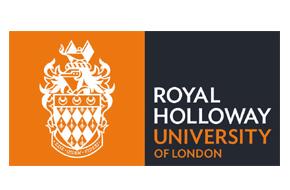2014 MA Marketing Camp
The Market, Violence & Consumers
7 November, 2013, 6:00 pm
Senate House, Room 264
Keynote Speaker: Heide Gerstenberger, University of Bremen
The Markets, Violence and Consumers
There is no
doubt about it. Capitalism has been one of the great hopes in the development
of mankind. And not only proponents of capitalism but also many of its Marxist
critics have agreed that its development marks, indeed, an advancement in
humanity. Contracts would – and they eventually more or less did –replace the
use of direct violence in labor relations. And international trade relations,
while not the civilising force which had been expected of them in the
eighteenth century, are no longer most often established by force of arms. In
some sense capitalism has become domesticated. It is no accident that it was in
the 1970s that Johan Galtung has suggested to grasp the new forms of
imperialism through the analytical concept of “structural violence”. Though it
differs markedly from the Marxian analysis of the violence inherent in
capitalist labor relations it is useful to capture trends of development which
have become dominant after the Second World
War.
I will endeavour
to explain:
(1) that
these dominant trends and dominant theories have neglected to take into
account the amount of direct violence against persons which has been part and
parcel of the real history of capitalism,
(2) that
globalization has counteracted trends of domestication, and
(3) that
from the use of sugar in the 18th century to the purchase of cheap
T-shorts in the 21st century consumer
practices have sustained slavery and slave-like labor relations.
Heide
Gerstenberger has been a professor for the “theory of state and society” at the
University of Bremen. She is now retired. Her
research, though covering a wide range of topics, has been centered on the
development of capitalist states. Since the end of the 1990s she has also been
engaged in empirical research of
maritime labor in the epoch of globalization. At present
she is working on “markets and violence”.
Panel Discussion:
Dominique Bouchet founded the Marketing Department in the University of Southern Denmark with a view to understanding marketing in conversation with economics, philosophy and sociology. His positioning of the subject has come to be especially influential and the department he developed is recognised as a space that has fostered cultural and theoretically informed scholarship in marketing in general and in consumer culture theory in particular. He is a public intellectual figure in Denmark.
Kate Soper is a retired Professor of Philosophy and arguably the foremost philosopher of consumption today. She was particularly active with feminist and peace movements during the 1970s and regularly contributed to such journals as the New Left Review. She is author of various books including To Relish the Sublime and has co-edited influential texts like The Politics and Pleasures of Consuming Differently and Citizenship and Consumption.
Stephen Dunne is lecturer in Social Theory and Consumption at the University of Leicester. Stephen is a co-editor of Ephemera: Theory & Politics in Organization and has published in a variety of journals including the Sociological Review, Philosophy Today and Marketing Theory.
To register attendance for this event please email alan.bradshaw@rhul.ac.uk

